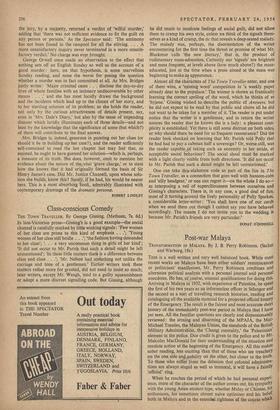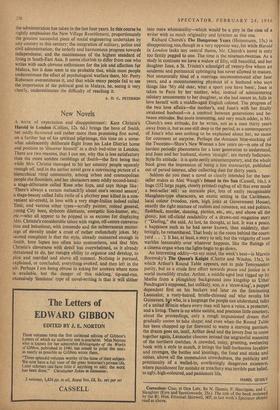Post-war Malaya
Tuns is a well written and very well balanced book. While most recent works on Malaya have been either soldiers' reminiscences or politicians' manifestoes, Mr. Perry Robinson combines and alternates political analysis with a personal journal and personal anecdotes. He has, of course, unusual qualifications for doing this. Arriving in Malaya in 1952, with experience of Palestine, he spent the first of his two years as an information officer in Selangor and the second as a sort of travelling research historian, reading and cataloguing all the available material for a projected official history of the Emergency. The result is the fairest and most accurate short history of the immediately post-war period in Malaya that I have yet seen. All the familiar questions are clearly and dispassionatelY reviewed: the arming and disarming of the MPAJA, the Mac' Michael Treaties, the Malayan Union, the standards of the British, Military Administration, the `Changi mentality,' the 'Palestinian' element in the police. Due credit is given to the police and to Mr. Malcolm MacDonald for their understanding of the situation and resolute action at the beginning of the Emergency. All this makes sober reading, less exciting than that of those who see treachery on the one side and, nobility on the other, but closer to the truth. To those who suffer from the delusion that colonial administra- tions are always stupid as well as immoral, it will have a faintly 'official' ring.
When he reaches the period of which he had personal experi- ence, more of the character of the author comes out, his sympathy with the young Asian student type, whether Malay or Chinese, his enthusiasm, his sometimes almost naive optimism and his belief both in Malaya and in the essential rightness of the course which
the administration has taken in the last four years. In this course he rightly emphasises the New Village Resettlement, proportionately the greatest successful piece of social engineering undertaken by any country in this century; the integration of military, police and civil administration; the orderly and harmonious progress towards independence; and the maintenance of the highest standard of living in South-East Asia. It seems churlish to differ from one who writes with such obvious enthusiasm for the job and affection for Malaya, but it does seem to me probable that, while most people underestimate the effect of psychological warfare there, Mr. Perry Robinson overestimates it, and that while many people fail to see the importance of the political goal in Malaya, he, seeing it very clearly, underestimates the difficulty of reaching it.
A. D. C. PETERSON



































 Previous page
Previous page